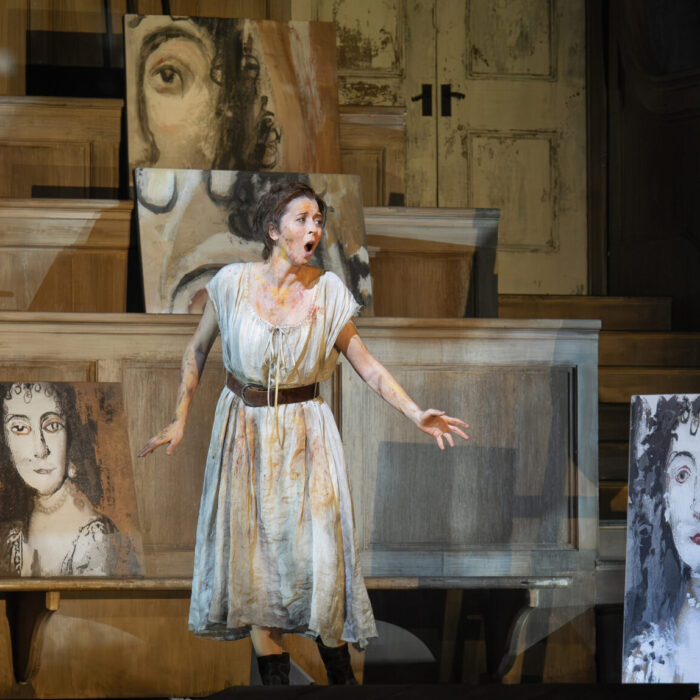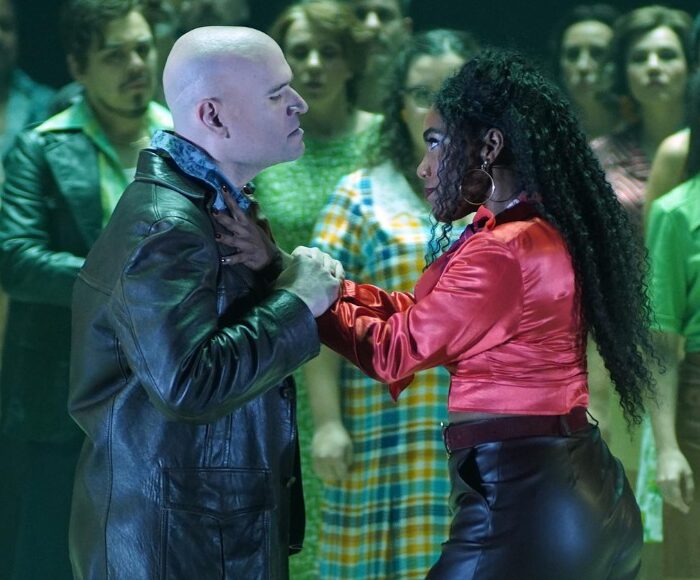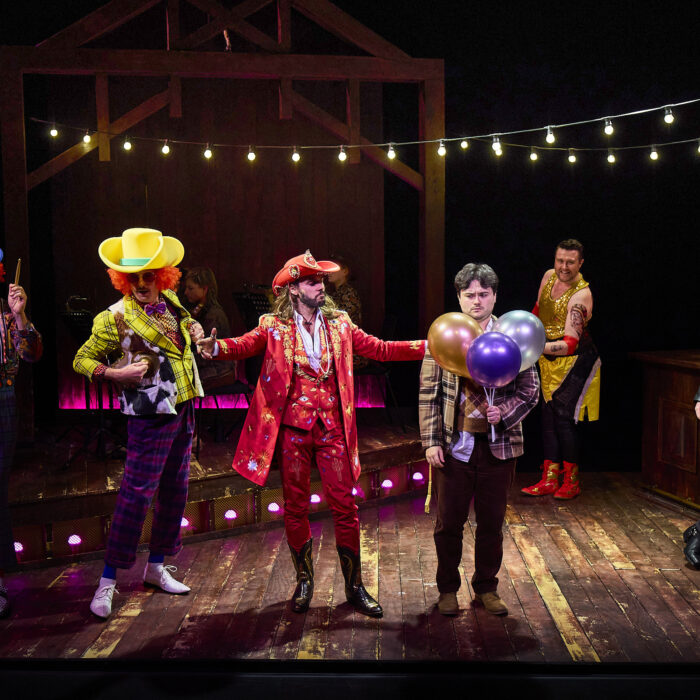
Bard Summerscape 2019 Review: Das Wunder Der Heliane
Ausrine Stundyte, Daniel Brenna Deliver In A Polarizing Work
By Matt CostelloI think the trickiness of reviewing this work – for me, at least – can be expressed by an exchange I had with a couple at Bard’s Sosnoff Theater during the intermission of the Erich Wolfgang Korngold’s opera, “Das Wunder Der Heliane (The Miracle of Heliane).”
Apparently, a woman had noticed me taking notes during the performance, perhaps deduced I was reviewing it, and asked: “What did you think?” I then gave her a brief summary of my thoughts to that point, and – turn about being fair play – asked what she thought, to which she said: “Fabulous.”
That, however, was not the answer I was expecting. And as her husband passed, I asked him whether he agreed with that assessment. He replied, “No” and then wryly added (to the best of my recollection): “I would – if reviewing – say that the composer has the makings a very good film score composer.”
And I imagine that for many in the audience, how one felt about the piece could vary. There was a lot to respond and react to — positively, not so positively, and all shades of grey in the middle.
The Piece Itself
The opera premiered at the Hamburg Sate Opera on October, 7, 1927. The libretto by Hans Müller-Einigen is a peculiar expressionist tale, an allegory or a fable involving a brutal Ruler, his beautiful wife, the Queen, and a charismatic Stranger, who for reasons we are not directly told, has stirred up the people — aka the mob.
Sentenced to death, he is approached by the Queen, herself a prisoner, who takes pity on him, and perhaps more than that. Said Queen has never – we learned – made love to her husband, the (for some reason) quite brutal Ruler. And due to her beauty, she now has the Stranger imploring rather endlessly that he kiss her, that she reveal her nakedness to him, and finally that she make love to him.
In short, this piece is certainly out of sync with an era where we all accept that no means no. And while there is a simmering erotic feel to much of the scenes as written and acted, there is an oddness and obsessiveness as well. One example is when the Stranger seems unusually and lengthily fixated on the Queen’s feet.
So — pausing now in sharing the tale, let me shift to the music. In my fiction writing, I often match great film soundtracks to the emotions and suspense of scene being written. So I know Korngold’s great work on such scores as “The Adventures of Robin Hood,” “Captain Blood,” “The Sea Hawk,”and many others.
The music of this later work – especially from the mercurial orchestra — is often powerful and well-matched to the emotions on the stage. And much like the “Marietta’s Lied” in “Die Todt Stadt,” there is a haunting and stunning aria for the Queen as she stands on a platform with the executioner’s sword embedded.
In general, there is much to appreciate in the score while at the same time many might not feel that the music all gels into a coherent piece.
On To The Show
Heliane was Lithuanian Soprano Ausrine Stundyte with a sumptuous voice that could easily ride over the robust sound of Korngold’s orchestra. Her voice had a ringing clarity that brought drama to her unusual scenes with the Stranger. And her singing made that great Act two aria, “Ich ging zu ihm,” was so very memorable and haunting.
Daniel Brenna’s Stranger is given a tremendous amount to sing in Act one, seemingly singing full out — heroically — for the entire act. He handled that challenge well. And when the score calls for passion and lyricism, he faced those moments with a steady confidence and power.
Alfred Walker’s brutal Ruler took a role that I imagine would be hard to humanize, and did just that. At turns, his bass-baritone was properly brutal, dominating all, but was later capable of showing a more sympathetic side to the besieged character.
David Cangelosi’s Blind Chief Justice is given major sections to sing as he seems to have the final say as to who lives and who dies.
Strong Direction
Leon Botstein – as always – led the American Symphony Orchestra in this unfamiliar music with a feeling and mastery as if it was a regular and highly polished repertoire work. While the sound from the score was at times a force of nature, matching the fable-like nature of the story, special mention should be made of the brass, constantly driving the musical drama.
The stage direction was under Christian Räth who — due to the nature of what is largely a talky text — had his work cut out for him. But he made many of the moments visually engaging, from the dramatic entry of the imprisoned Stranger, wheeled in like Hannibal Lector, to the appearance of carnival-like costumed judges who act as an amusing chorus responding to the action going on below them as the fate of the Stranger and the Ruler’s perhaps unfaithful Queen is resolved.
The mob scenes were handled well, and used effusively to confront the Ruler as he loses control. One special moment had the crowd slowly withdrawing, as they seep away in unison from a scene with the principals locked in conflict.
The set by Esther Bialas is – as you might well imagine – grey with stairs and screens representing the darkness of this totalitarian regime where love is banished.
There were, I thought, touches in the staging here and there of both brilliance and oddness. When the dancers start a small ballet in Act two, their movements seemed more matched to the Sharks and Jets.
There is one last important note to be added. Each year, Bard Summerscape focuses on one composer — their world, their influences, and who they influenced in a dizzying array of performances, lectures, premieres.
So it’s a wonderful cultural gift that during the summer-long festival, audiences can hear performances of Korngold’s great film scores, his most successful opera, “Die Todt Stadt,” and an intriguing premiere like “Heliane” that was not the success that many expected in 1927.
And the fact is it given such a world-class production — with care, passion and attention to every detail — is remarkable.


